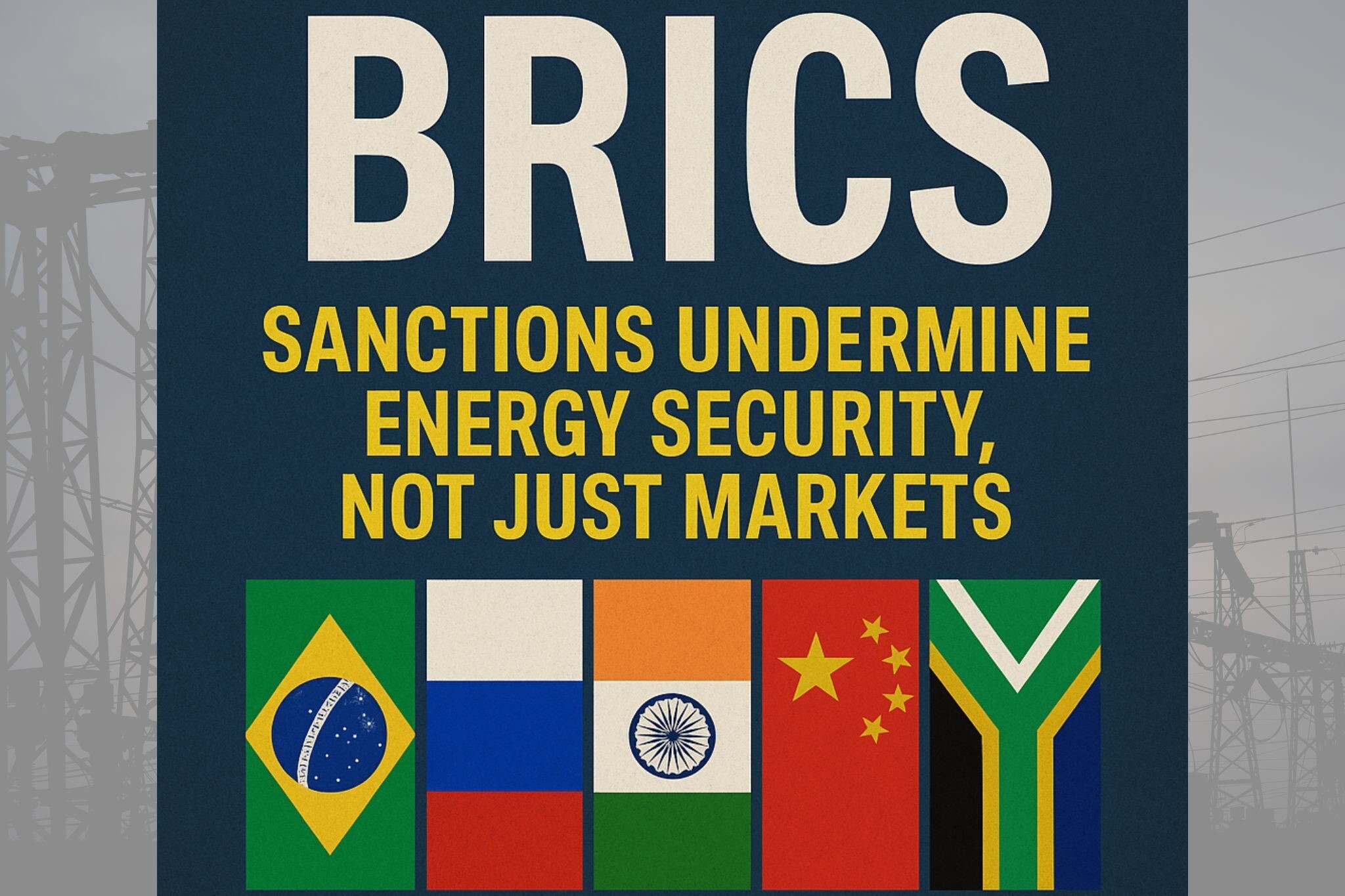

In a sharply worded communique, the BRICS bloc — Brazil, Russia, India, China, and South Africa — has fired a warning shot at the West’s growing reliance on sanctions as an instrument of energy policy. At the latest BRICS Energy Ministers’ Meeting held under Russia’s presidency, the five-nation grouping condemned what they call “unilateral sanctions” and “arbitrary restrictions,” signalling an urgent geopolitical realignment that is beginning to redraw the contours of the global energy map.

“We express concern about unilateral sanctions and arbitrary restrictions on energy trade and investment in the energy sector that disregard international law... and pose a threat to the security of the critical energy infrastructure,” the BRICS group said in a joint statement.
This declaration comes against a combustible global backdrop: one where sanctions have increasingly targeted major fossil fuel producers, supply chains are splintering, and energy is no longer just a commodity — it’s a weapon.
What’s really at stake?
While the BRICS rhetoric may read like diplomatic boilerplate, the subtext reveals a coordinated counteroffensive to Western economic coercion. Since 2022, owing to Russia’s full-blown invasion of Ukraine, more than 13,000 sanctions have been imposed on Russia, according to Castellum.AI, with a considerable portion targeting oil, gas, and metals. However, the contentious move has led to a secondary spillover that has impacted Chinese tech firms, Indian refiners, and even Brazilian biofuel exporters caught in the dollar-denominated crossfire.
For BRICS, this isn’t just about defending sovereignty but reclaiming market agency.
 Events
Events
 e-Magazines
e-Magazines
 Reports
Reports
Responses








